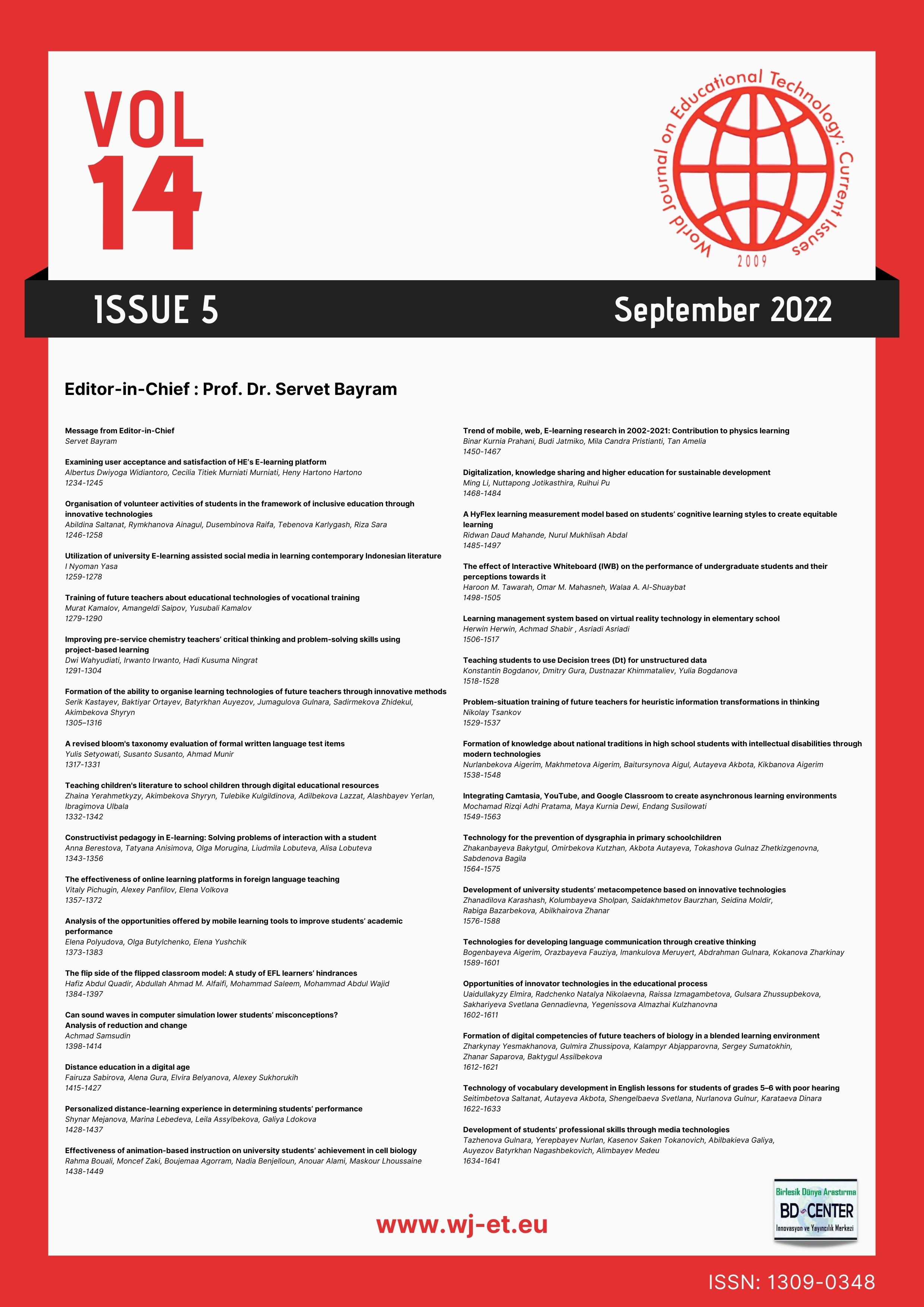Constructivist pedagogy in E-learning: Solving problems of interaction with a student
Main Article Content
Abstract
The study focuses on improving e-learning effectiveness and its implementation during the COVID-19-induced lockdown. The study involved 328 students aged 20 to 24 years with an equal number of males and females. Research shows that e-learning is mostly used together with embedded pedagogical tools and technologies rather than single training programs to improve the quality of teaching based on a unified method. Constructivism is an effective approach for this purpose. The research results can be used in programs with embedded learning elements based on constructivist pedagogy in online and blended learning at higher educational institutions.
Keywords: e-learning; constructivism; student-teacher interaction; problem-based learning; student-centered learning; individual learning path
Downloads
Article Details

This work is licensed under a Creative Commons Attribution 4.0 International License.
World Journal on Educational Technology: Current Issues is an Open Access Journal. The copyright holder is the author/s. Licensee Birlesik Dunya Yenilik Arastirma ve Yayincilik Merkezi, North Nicosia, Cyprus. All articles can be downloaded free of charge. Articles published in the Journal are Open-Access articles distributed under CC-BY license [Attribution 4.0 International (CC BY 4.0)].
Birlesik Dunya Yenilik Arastirma ve Yayincilik Merkezi (BD-Center)is a gold open-access publisher. At the point of publication, all articles from our portfolio of journals are immediately and permanently accessible online free of charge. BD-Center articles are published under the CC-BY license [Attribution 4.0 International (CC BY 4.0)], which permits unrestricted use, distribution, and reproduction in any medium, provided the original authors and the source are credited.
